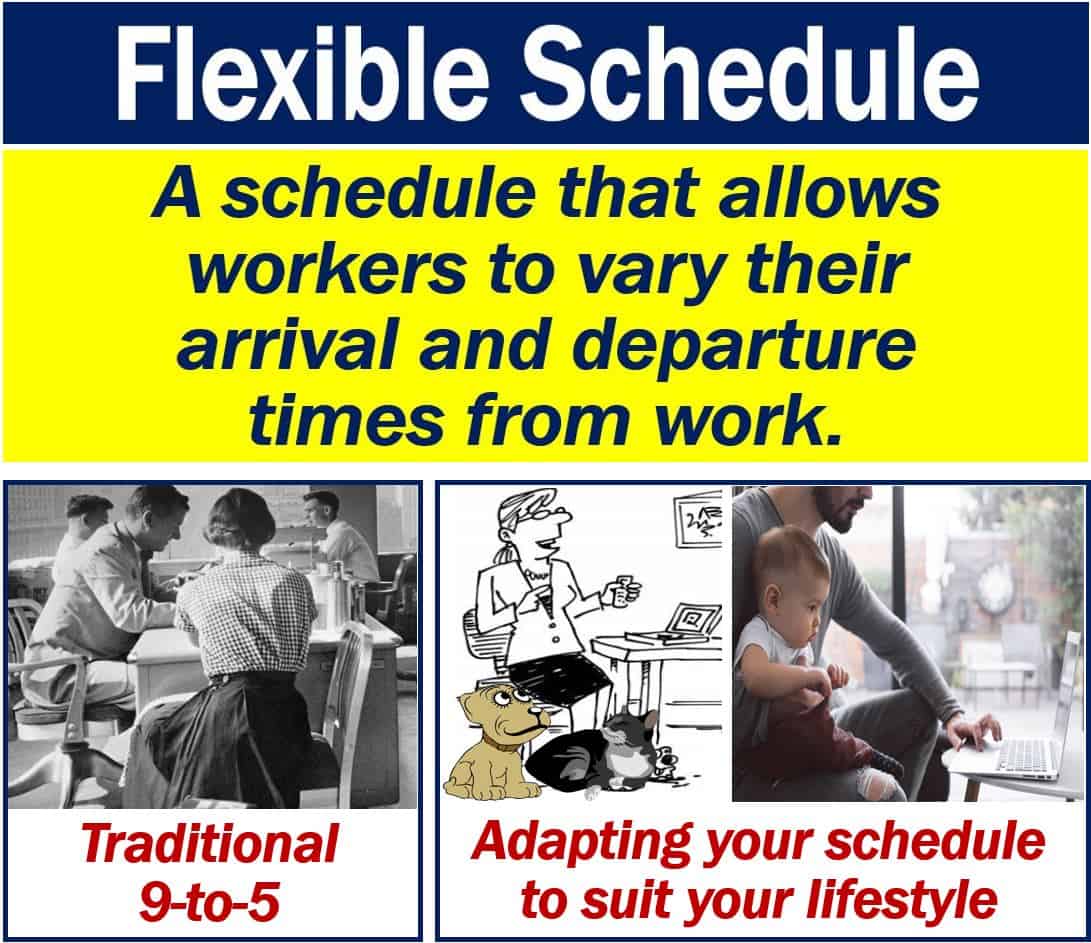What is a flexible schedule? Definition and examples
A flexible schedule or flexible work schedule is an alternative to the traditional nine-to-five working day. It is also an alternative to the forty-hour week. A flexible schedule allows workers to vary when they come in and leave their workplace. We also use the term for people who work at home. For teleworkers, the term refers to being able to vary when people begin and finish work.
Employees who work at home, for example, are teleworkers. Teleworking means working remotely, i.e., far from your employer.
We can also use the term ‘flexible scheduling’ instead of flexible schedule.
Some employers have a daily ‘core time‘ policy. This means that employees must be at work from, for example, 10 am to 1 pm. However, there is flexibility regarding when they come in and leave.
According to the United States Department of Labor:
“A flexible work schedule is an alternative to the traditional 9 to 5, 40-hour work week. It allows employees to vary their arrival and/or departure times.”
Do not confuse the term with ‘flexible staffing,’ which means not using permanent employees.

Today’s flexible schedule
Flexible scheduling has been around for a long time. However, what it means today has changed slightly compared to a few decades ago.
In the past, the term referred to changing from a 9-to-5 either 8-to-4 or 7-to-3. Perhaps it also included shifting to a 10-to-6 routine.
However, since the advent of the Internet and modern telecommunications, things have changed. Specifically, employees, especially millennial employees, today demand more from their employers.
Millennials are people born from the early 1980s to the second-half of the 1990s.
A worker today may want a flexible work schedule, not every day of the week, but on particular days. For example, when a child has a dental or doctor’s appointment, or when a parent has to be at the child’s school.
Non-exempt workplaces
In non-exempt workplaces, a flexible schedule depends on how interdependent the workers are.
Nurses, for example, might find flexibility difficult to put into practice if they cannot find anybody to cover their shift.
Regarding flexible schedules and what they depend on, thebalancecareers.com says:
“A flexible schedule is also dependent on employee availability to cover all aspects of the job and all hours of the day during which a business makes products or serves customers.”

